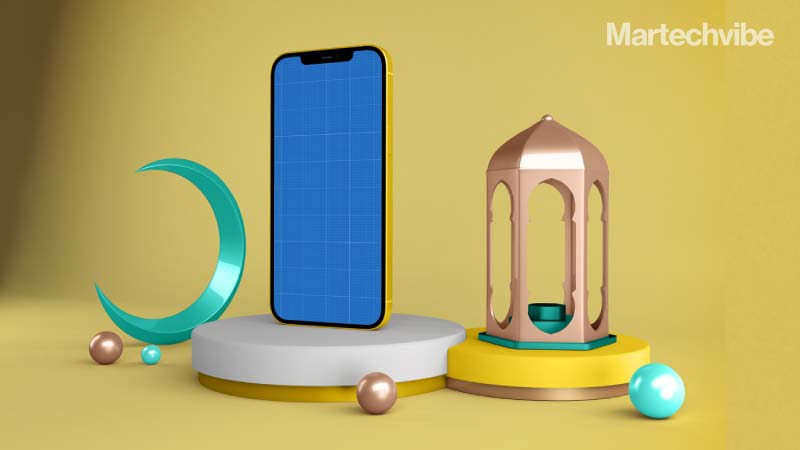Are You Ready for a Virtual Ramadan?
From live streaming prayers to prevent any potential spiritual vacuum to rustling up meals using recipes on YouTube, Muslims around the world are going high-tech We are in a pandemic mode for over a year now. But just as Ramadan has been extraordinary last year under the Covid-19 lockdown, this year as well, it will […]
Topics

From live streaming prayers to prevent any potential spiritual vacuum to rustling up meals using recipes on YouTube, Muslims around the world are going high-tech
We are in a pandemic mode for over a year now. But just as Ramadan has been extraordinary last year under the Covid-19 lockdown, this year as well, it will be celebrated under exceptional circumstances, with technology but restricted Iftar get-togethers.
From rustling up meals using recipes on YouTube to listening to prayers via Zoom, the month-long observance of Ramadan will be with a reliance on technology for 1.8 billion Muslims around the world.
While we continue to stay in touch with our loved ones through Skype, FaceTime, Zoom and other video call apps, mosques adapt by turning to social media and apps to keep in touch with worshippers by live streaming motivational lectures courses and prayers to prevent any potential spiritual vacuum. The Haramain app brings the latest prayers from Masjid al-Haram and Masjid al Nabawi straight to phones.
There are hundreds of Koran apps, including the popular Learn Quran Tajwid, Quran Companion, and iQuran, to memorise the holy book with translations and audio recordings.
Also Read: Why Emotion is Big Business
Facebook Live, Instagram, the Houseparty app and YouTube are expected to be among the sources for those fasting from sunrise to sunset each day. Last year, Twitter launched 16 premium video contents with a variety of themes.
While mobile phone apps such as iPray offer a beeping reminder of prayer times, there are scores of apps — OnePath Network, Muslim Pro, QamarDeen Quran — available to help perform the religious duties during the month of Ramadan.
Some apps use a GPS signal to calculate when to start and break the fast, calculate prayer times, and direct using Google’s augmented reality, Qibla Finder, to show the fixed direction toward the Kaaba in the Grand Mosque, to even pointing out halal food establishments, such as Halal Advisor and Scan Halal.
Data has shown that Muslims tend to increase their smartphone usage, particularly during the month-long observance of Ramadan. In 2019, time spent in Saudi Arabia and in the UAE watching sports videos rose by 22 per cent, travel videos by 30 per cent, and video games by 10-20 per cent. In 2020, people in the Middle East and North Africa (MENA) spent around 58 million more hours on Facebook during Ramadan, which is about five per cent higher or an additional two million hours than 2018, and watched more YouTube videos than during any other time of year, The Associated Press reported.
No wonder then, the holy month is the most important one for Muslims and the prime time of the year for marketers, as technology is shaping how people are connecting and shopping during Ramadan.
According to the latest data from AppsFlyer and Braze, organic install activity in shopping apps starts picking up a month before Ramadan, growing 40 per cent in the two weeks leading up to Ramadan and an additional 30 per cent in the first week of Ramadan. This increase in activity is also accompanied by a steady rise in in-app spend on mobile.
Last year, a study conducted by Facebook IQ and YouGov found 44 per cent of its survey respondents in the UAE spend more time using their mobile during the season to research and shop rather than go to a store.
Knowing this, companies need to leverage the rise in mobile entertainment to reach the right audience and boost sales, and this extends to small, local businesses too. Meanwhile, a Google study found that MENA foodies drove growth in food-related queries during Ramadan with a 125 per cent year-on-year increase. This growth led to a 23 per cent increase in grocery delivery applications in the UAE and Saudi Arabia.
During the pandemic, e-commerce sales have been soaring across all industries. If e-commerce is about people finding products, then Facebook Discovery Commerce is about products finding people. Over 200 million businesses, primarily small, use Discovery Commerce every month to build a digital presence and connect in multiple ways to a broad audience. For instance, I make this!, a marketplace and a Facebook group from Egypt, is helping women who have small and medium businesses to advertise for free and connecting them with customers.
The theme of giving back is deeply rooted in Ramadan. And so, charities are increasingly looking to gather donations and during the annual fast. More than 6.5 million people living in Turkey and MENA have joined Ramadan-related Facebook groups, created in 2020, as non-governmental organisations call for solidarity to collect donations for Muslims in need — from Syria, Palestine, Bosnia-Herzegovina and Yemen to Somalia during Ramadan this year.
UAE Fusion Socialites, a Facebook group, encourages over 19,000 members to donate groceries during Ramadan.
Also Read:Ramadan 2021: Mobile Usage And Consumer Spending to Increase
Other virtual initiatives include the Ramadan Tent Project, where people sign up to receive recipes, decorations and games and can participate in a virtual Iftar, meet with friends and family via Zoom app or Facebook. An Egyptian Facebook group, called Traveller Experience, with more than 2.5 million members, will be doing Ramadan tent-style conversations with travellers from Egypt to speak about their experiences after Iftar.
The group urges their members to donate to charities delivering free meals to underprivileged people affected by Covid-19 and will be preparing Iftar/Ramadan packages throughout the month. Meanwhile, one can learn about Islamic places through Islamic GPS, the first augmented reality app, to find mosques and discover knowledge about Islamic heritage sites interactively and engagingly.
If we have learned anything during last year’s Ramadan, ancient traditions are going high-tech with modern offerings, and businesses realise that with technology, they don’t need to waste time waiting for people to find their products. Their products will find the customers.








































































































